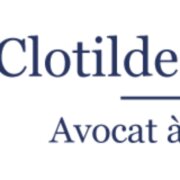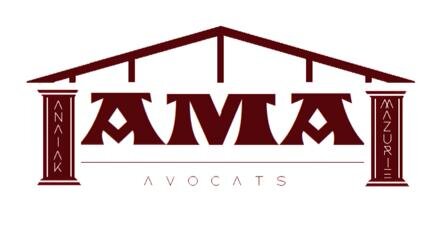Best Drugs & Medical Devices Lawyers in France
Share your needs with us, get contacted by law firms.
Free. Takes 2 min.
Or refine your search by selecting a city:
List of the best lawyers in France
About Drugs & Medical Devices Law in France
France has a stringent regulatory framework governing drugs and medical devices to ensure public safety and efficacy. The French National Agency for the Safety of Medicines and Health Products (ANSM) is the main regulatory body responsible for overseeing the approval, distribution, and surveillance of these products in France. The regulatory process involves rigorous testing and compliance with both national and European Union standards.
Why You May Need a Lawyer
Individuals and companies may encounter various legal challenges related to drugs and medical devices in France. Common situations include issues with regulatory compliance, intellectual property disputes, liability claims, or navigating the complexities of product recalls and safety alerts. Legal representation can also be crucial during negotiations, contract drafting, or litigation involving pharmaceutical companies and healthcare providers.
Local Laws Overview
The legal framework for drugs and medical devices in France is primarily governed by the French Public Health Code, which outlines the safety, evaluation, and marketing rules. Compliance with European Union regulations, such as the EU Medical Device Regulation (MDR) and the EU Clinical Trials Regulation, is also essential. Key legal aspects include marketing authorization, clinical trials, pharmacovigilance, and proper labeling obligations.
Frequently Asked Questions
What is the role of ANSM?
The ANSM is responsible for ensuring the safety, quality, and efficacy of health products, including medications and medical devices, in France. It grants marketing authorizations and monitors adverse effects in the market.
What is the process to obtain marketing authorization for a new drug?
To obtain marketing authorization in France, a pharmaceutical company must submit a comprehensive dossier to the ANSM, demonstrating the drug's safety and efficacy through clinical trials. The process aligns with European procedures.
Are there specific regulations for medical devices in France?
Yes, medical devices must comply with both national regulations under the French Public Health Code and European regulations like the MDR. They require CE marking to enter the market.
What are the penalties for non-compliance with drug regulations?
Penalties for non-compliance can include fines, imprisonment, product recalls, and revocation of marketing authorizations. Severity depends on the nature and seriousness of the non-compliance.
What should I do if I experience an adverse effect from a medication?
If you experience an adverse effect, report it to your healthcare provider and the ANSM. Reporting helps monitor the safety of the medication and take necessary actions.
How are clinical trials regulated in France?
Clinical trials are regulated to ensure participant safety and data integrity. Approval is required from both the ANSM and an independent ethics committee before trials can commence.
What is pharmacovigilance, and why is it important?
Pharmacovigilance involves monitoring the effects of drugs after they have been authorized for use, ensuring that any adverse effects are identified and assessed promptly to maintain public safety.
Can foreign manufacturers sell medical devices in France?
Yes, foreign manufacturers can sell medical devices in France but must comply with EU regulations, obtain CE marking, and may need to appoint an authorized representative in the EU.
What legal recourse do patients have against defective drugs or devices?
Patients can file a liability claim against manufacturers if harmed by defective drugs or devices. Legal actions may seek compensation for damages and can involve complex litigation.
How do drug patents and intellectual property work in France?
Drug patents in France provide exclusive rights to the patent holder for a duration usually up to 20 years. This system encourages innovation while balancing market competition once patents expire.
Additional Resources
Several resources can be helpful: the ANSM website for regulatory guidelines, the European Medicines Agency for EU-wide regulations, and legal databases for French jurisprudence. Additionally, organizations like France Biotech offer industry-specific insights.
Next Steps
If you need legal assistance in drugs and medical devices, consider contacting a law firm that specializes in health and regulatory law. Prepare all relevant documents, research your issue to understand the legal context, and consider whether you need legal representation for negotiations or litigation. Always consult with a qualified legal professional to guide your decisions and protect your interests.
Lawzana helps you find the best lawyers and law firms in France through a curated and pre-screened list of qualified legal professionals. Our platform offers rankings and detailed profiles of attorneys and law firms, allowing you to compare based on practice areas, including Drugs & Medical Devices, experience, and client feedback.
Each profile includes a description of the firm's areas of practice, client reviews, team members and partners, year of establishment, spoken languages, office locations, contact information, social media presence, and any published articles or resources. Most firms on our platform speak English and are experienced in both local and international legal matters.
Get a quote from top-rated law firms in France — quickly, securely, and without unnecessary hassle.
Disclaimer:
The information provided on this page is for general informational purposes only and does not constitute legal advice. While we strive to ensure the accuracy and relevance of the content, legal information may change over time, and interpretations of the law can vary. You should always consult with a qualified legal professional for advice specific to your situation.
We disclaim all liability for actions taken or not taken based on the content of this page. If you believe any information is incorrect or outdated, please contact us, and we will review and update it where appropriate.
Browse drugs & medical devices law firms by city in France
Refine your search by selecting a city.















